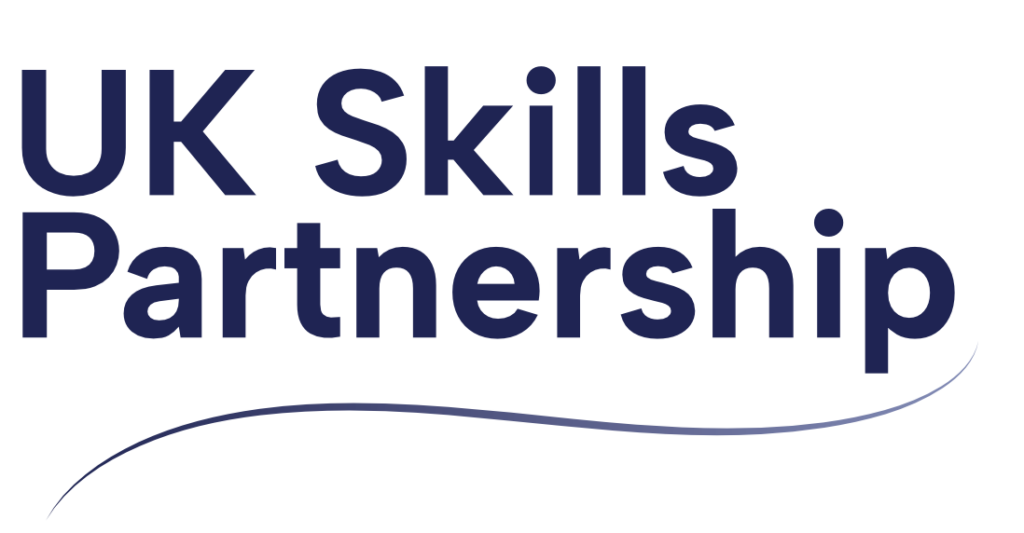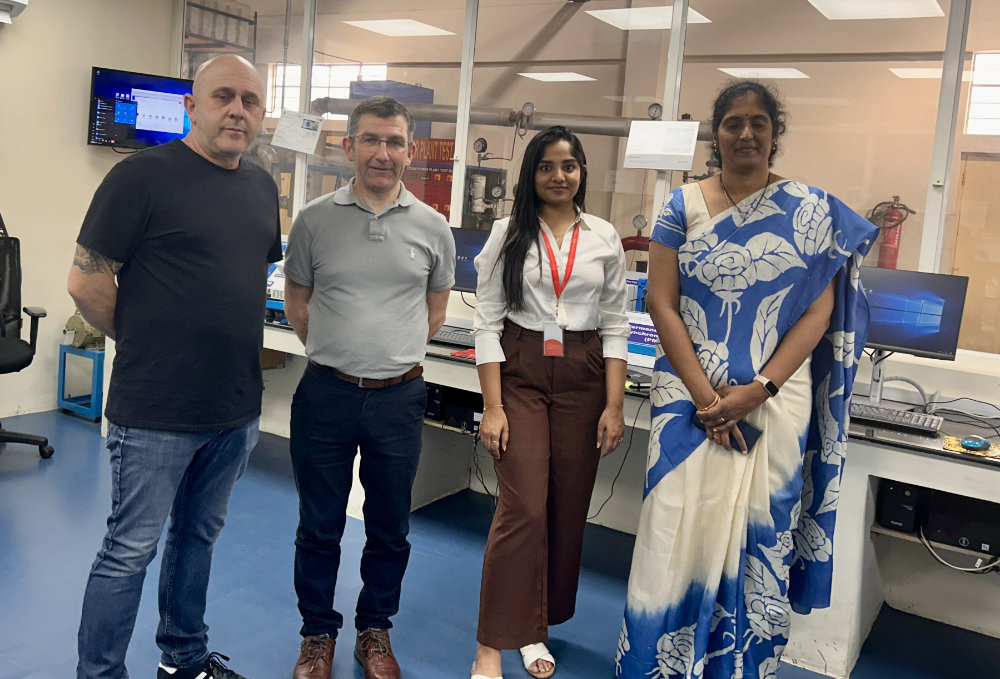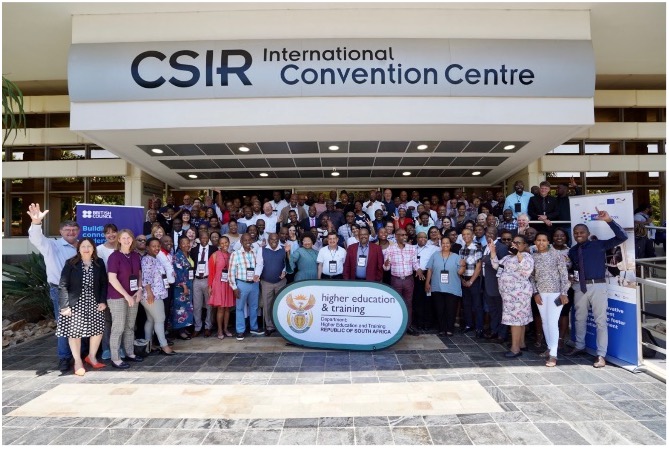
CAVC deliver Indian Aerospace and Aviation provision
Cardiff and Vale College (CAVC) won a contract under the UK Government Skills for Jobs Programme to deliver an online Technical and Vocational Education and Training (TVET) programme to the Indian Aerospace and Aviation Sector Skill Council (AASSC).
The case study work is part of the Foreign, Commonwealth and Development Office (FCDO) partnership with the Indian Ministry of Skill Development and Entrepreneurship (MSDE) and funded under the Skills for Jobs Programme (S4J).
The training was delivered in mid-March 2021 and focussed on skills for Airline Customer Executive and Cabin Crew together with platform skills training for the participants via CAVC’s International Centre for Aerospace Training (ICAT). This package of training was delivered through a ‘Train the Trainer’ lens such that participants can subsequently use the skills and knowledge assimilated to deliver enhanced training to aviation industry trainees.
The training consisted of two trainers from CAVC and one trainer from one of its partners delivering the sessions over four days to a group of 30 Indian participants working in the Indian aviation sector. The training was delivered over the Microsoft Teams platform and sessions were designed in such a way to mitigate some of the limitations associated with online teaching. This included balancing the degree of interaction with participants possible in digital environments, with time pressures.
CAVC is very proud of its role in developing the skills ecosystem in India by helping facilitate an upgrade of the Indian aviation education provision and skilling infrastructure whilst contributing to the strategic enhancement of skill levels in the wider Indian labour market.
Cardiff and Vale College, part of the Colleges Wales International network, provides world-class catering and hospitality skills and training provision to students of all ages.
CAVC is a large Further Education College located in the capital city of Wales. By volume of students, it is in the top 5 biggest Colleges of its kind in the UK.
The history of CAVC is grounded in technical and vocational education, but the provision has evolved to deliver a range of programmes from Levels 2 through to Level 6 in vocational, professional and academic courses including apprenticeships. It has an enviable track record of skilling, re-skilling and upskilling students both locally and regionally, with an ambition now to extend this know-how into the international space.
CAVC are able to skills gaps where these exist in international contexts, in order to help sustain the integrity of sectors in-country. In addition, CAVC uses sophisticated LMI techniques, tools and experience to shape training and upskilling programmes to suit client needs. Other skills solutions include Train the Trainer/Assessor, curriculum design, consultancy on apprenticeships and work based learning, setting up employer boards and advising on accreditation and quality assurance.
India is among the world’s youngest country and home to 28% of the global workforce. Its tremendous economic growth over the past two decades has resulted in significantly increased per capita incomes. This success does create its own challenges around producing a well-trained labour force to sustain growth.
Indeed the Indian Government has set a target of training 500 million people by 2022. Great strides are being made to ensure that plans to build capacity, scale up and address national skill shortages are sufficient and effective. The UK Government Skills for Jobs Project for India is part of this process to improve access and the quality of skills training in India.
The Indian Government aspires to become one of the top global aviation hubs by 2040. Achieving this target will result in significant growth, attracting more and more business and customers and therefore placing greater demand on building a highly skilled workforce and skills ecosystem in aviation.
The aviation industry in India has emerged as one of the fastest growing in the country in recent years with a new study by the consultancy firm KPMG predicting that India is all set to become the world’s third largest aviation market by 2020 after the US and China. No doubt the pandemic will have impacted on the growth trajectory but as the world transitions into a new normal a people are able to move around more freely, it is clear that India will be in the vanguard of this resurgence.
The MSDE together with the AASSC recognise that this growth ambition must be supported by a comparable increase in infrastructure and skills. Train the Trainer programmes such as the one highlighted in this case study go one step further and provide a mechanism which results in creating a team of Master Trainers able to cascade their knowledge and skills to ramp up at pace capacity and capability across different National Occupational Standards and different employment sectors.
Identifying and creating a skills solution was a key first part of the assignment for CAVC. Working from the specification provided we worked closely with partners to really apprehend the rationale for the training. Only when the brief is fully understood, could CAVC start to think about solutions, methods, content and how the various strands of the training knitted together in a coherent whole.
This was an iterative process as more information about the profile of the participants and the nature of the outcomes the client was seeking from the training became available.
The challenge for any train the trainer type programme is to ensure that participants develop and further a capability in terms of instructing other, would be, trainers on how best to impart knowledge and skills to trainees.
Trainers will have an intimate knowledge of job roles, tasks and procedures but often need additional training in how to deliver this content in such a way that trainees are fully engaged and immersed in the process of learning.
This in turn produces a set of Master Trainers who can continue this process and enhance the quality of skills and therefore service levels in any given industry. This is a real skill in itself as it depends on trainers having both a sound knowledge of domain skills as well as expertise in pedagogic principles, skill acquisition and behavioural psychology. In short, Train the Trainer is more about the how and why, rather than the what.
The sessions are designed to be highly interactive and a great opportunity for CAVC practitioners to learn more about the way that skills are developed and taught in the Indian context. The ability to discuss subtle cultural and policy difference in skilling requirements was an enlightening and enjoyable process to be involved with for all stakeholders as best practices is shared across geographical boundaries.
All participants were awarded a Training of Trainers Programme Certificate signed by the CEO of the AASSC and the International Director of CAVC.
The intended impact of the S4J programme was to promote joint prosperity as a result of improved skill levels in the Indian labour market. CAVC is now actively contributing to this ambition by upskilling the trainers in this programme. These individuals will go back into their roles enthused and equipped with new knowledge and ideas to help produce an even more professional workforce in Executive Customer Service and Cabin Crew domains in the Indian aviation sector. This upskilling feeds into the reputation of the industry in India and helps optimise the quality of the service provided in an increasingly competitive global sector.
In addition, the programme highlights the importance of ‘Train the Trainer’ interventions and exposes the clear merits and importance of this specialised aspect of training. Work like this also helps raise the profile of general Train the Trainer activity and reinforces its place and importance within a training framework and tool-box.
Moreover, given that Cabin Crew and Executive Customer Service roles are largely filled by women, it is hoped that one of the consequentials of this training will be to help increase the profile and attractiveness of such careers and encourage and mobilise more women living in India into this line of professional work.
Another impact is the ability of trainees to learn more about how other comparable sectors deliver skills training in different international settings. This opportunity to share best practice and ideas can only result in better outcomes for employers and consumers in the long run. This is a two way process providing the lovely opportunity for CAVC Master Trainers to learn from the Indian methodologies, methods and experiences and thus bring some International best practice into their own pedagogy.
Last but not least, this type of international collaboration will undoubtedly contribute to secondary benefits such as enhancing the already strong cultural and historical links and affinity between India and the UK.











